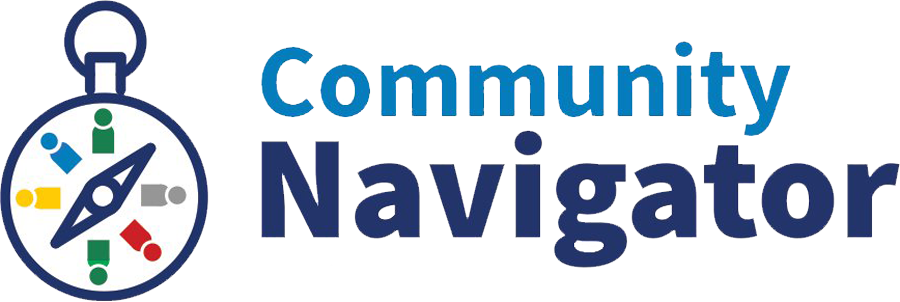Why Small Business Assistance Must Be Community-Centered
As a pilot initiative, Community Development Finance Authority (CDFA)’s Community Navigators Program is just touching the surface of inclusivity work and addressing the gaps in resource accessibility for New Hampshire’s historically underserved business owners and entrepreneurs. As such, we must remain humble and acknowledge that we don’t have all the answers to this complex problem. That is why the design and development of the Community Navigators Program were largely shaped by voices from the community. Kile Adumene, a community organizer that grew up around village movements in Nigeria, is one of them.
In 2021, Kile joined Community Navigator as a consultant and brought her expertise and network to help guide the program’s approach. Together with the team led by Jennifer Near, the Program Manager, she put outreach and community relationships at the forefront of CDFA’s Community Navigator Program.
Kile has dedicated most of her life to social and racial equity, and has nearly 25 years of experience with community engagement, education, healthcare, grassroots organization, and program design.
Kile Adumene, Community Organizer
“I don’t sit behind the computer and give you data. I won’t tell you who to talk to. I create a process with you. I invite you to that unknown space so you can observe and respond.”
In recent years, especially in the aftermath of the COVID-19 pandemic - which disproportionately affected communities of color - governmental and federal relief packages like the CARES Act were created to support small businesses. In New Hampshire, where 99 percent of businesses are small businesses, these funds were a much-needed complement to the already existing structure of small business support, such as the New Hampshire Small Business Development Center (NH SBDC), which is a local partner program of the U.S. Small Business Administration (SBA).
However, it was found that resources were not equitably reaching historically underserved communities in New Hampshire, specifically Black, Indigenous, and People of Color (BIPOC); immigrants and refugees; veterans; women; disabled, formerly incarcerated, and LGBTQ and gender non-conforming people. This happens for several reasons, and it sparked a need for actions to increase inclusivity.
This is where Kile crossed paths with the NH SBDC, CDFA, and what would later become the Community Navigator Program. CDFA was awarded a $2.5 million grant from the U.S. Small Business Administration to launch the program in New Hampshire, with the mission to reduce the barriers that underrepresented and underserved entrepreneurs often face in accessing the programs they need to start their businesses, expand, or recover.
For Kile, the program needed to close the distance between community members and the institutions providing the resources. She believes that the lack of agency can sometimes be as exclusionary as the systemic and societal barriers:
“If you think you have solutions for people, then bring them into the process. Sending a representative to assess a community’s issues and then design the solutions is a top-down approach that invisibilizes people and their stories. We need to hold space for building agency and creating relationships with the folks that are most impacted or affected.”
Community engagement and outreach were the key outcomes of Kile’s strategic role in the design of the Community Navigator Program. For that to be achieved, Kile was hired as a consultant to plan NH SBDC’s Inclusivity Commitment initiative. She created the process, and hired and trained community liaisons to execute the plan. Among them are Lidia Yen and Rafael Calderon, who continue to support the program today reaching out to entrepreneurs and small business owners in Southern New Hampshire. Having a community member lead the outreach is important not only because it ensures the message reaches the people who need it, but also because a familiar face increases trust in the program and its impact:
“I think that the institution part creates a barrier to the engagement itself. You’re not talking to an equal, you’re talking to someone who’s holding the power to do something about your problems. Outreach needs to be carried out by folks who are embedded in these ethnic or language groups, that are on the ground meeting people house to house.”
The aspect of trust cannot be neglected in this kind of community work. There is a history of mistrust in the systems and institutions within communities that have been historically underserved and underrepresented. So, when institutions like SBA, NH SBDC, and CDFA come forward with a program like Community Navigator to support these communities, it can be met with apprehension or doubt:
“There is a difference between saying ‘We’re here, we have a lot of stuff for you. If you come to find us, we will give you what need’, and establishing authentic connections with folks. If you have a conversation and build a relationship and follow through over time, you’ll be trusted.”
Another nuance that needs to be taken into consideration is the visibility and exposure of the work and outcomes of CDFA’s Community Navigator Program. As an initiative backed by federal funds, there is a need to show a good record of using those funds. However, being a community-centered program that works to benefit underserved business owners and entrepreneurs, the primary goal is to elevate their needs and voices.
Delivering Tools and Resources To Grow New Hampshire’s Small Businesses
CDFA is working alongside New Hampshire’s ecosystem of established microenterprise technical assistance providers, New Hampshire’s Small Business Administration office, statewide training and language-access partners, and on-the-ground community partners to achieve the goals of the Community Navigator Program.
These technical assistance providers and partners help entrepreneurs with practical aspects of owning a business, such as record-keeping, book-keeping, budgeting, business planning, marketing, financial management, specific legal advice, or raising capital to achieve business goals.
As for the Community Navigator Program, we will continue to elevate some of these key community voices, challenges, and lessons learned in future blogs.


